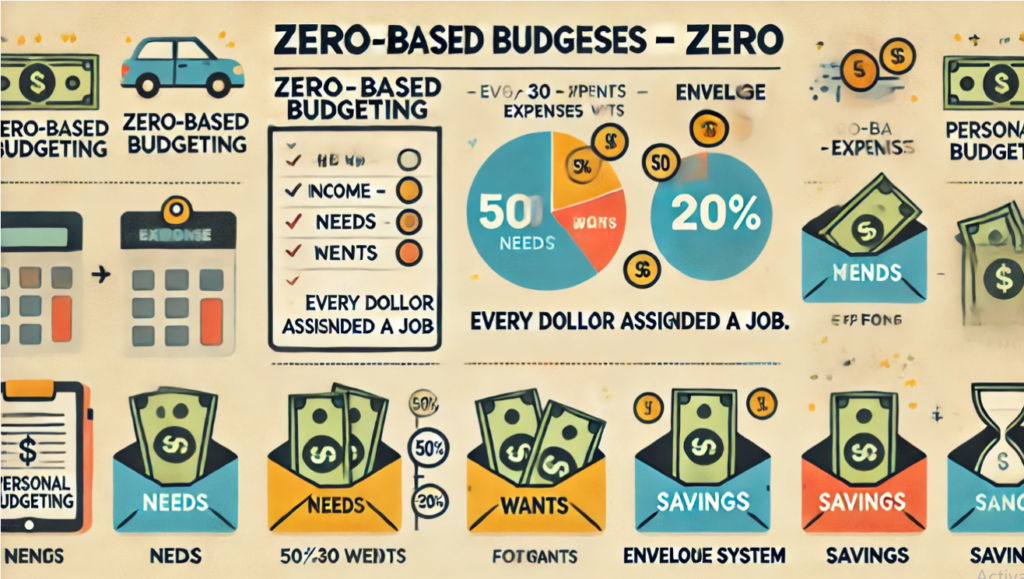 Financial planning is an essential aspect of managing our personal or business finances. It involves setting goals, creating a budget, and developing a strategy to achieve those goals. Without proper financial planning, it’s easy to overspend, accrue debt, and struggle to meet our long-term financial objectives. Consistent weekly efforts are crucial in keeping our financial goals on track. By reviewing our budget, tracking expenses, and making adjustments as needed, we can ensure that we stay on course and make progress towards our goals. Small, regular actions can add up to significant changes over time, making it easier to manage our finances and avoid major setbacks. In this article, we will discuss some key tips for effective financial planning and management.
Financial planning is an essential aspect of managing our personal or business finances. It involves setting goals, creating a budget, and developing a strategy to achieve those goals. Without proper financial planning, it’s easy to overspend, accrue debt, and struggle to meet our long-term financial objectives. Consistent weekly efforts are crucial in keeping our financial goals on track. By reviewing our budget, tracking expenses, and making adjustments as needed, we can ensure that we stay on course and make progress towards our goals. Small, regular actions can add up to significant changes over time, making it easier to manage our finances and avoid major setbacks. In this article, we will discuss some key tips for effective financial planning and management.
Set Clear and Specific Financial Goals
Short-Term vs Long-Term Goals:
Short-term goals are specific, achievable objectives that can be accomplished in a relatively short period of time, often within a year. Long-term goals, on the other hand, are more broad and may take several years to achieve. It’s important to have a balance of both short-term and long-term goals in order to stay motivated and focused on both immediate and future objectives.
SMART Goals Framework:
The SMART goals framework is a useful tool for creating financial goals that are clear, achievable, and time-bound. To create Specific goals, it is important to clearly define what you want to achieve, such as saving a specific amount of money or paying off a certain debt. Measurable goals should have a quantifiable target, such as saving a specific dollar amount or reducing debt by a certain percentage. Achievable goals should be realistic and within your means, taking into account your income, expenses, and financial situation. Relevant goals should align with your overall financial objectives and priorities, such as saving for a major purchase or investing for retirement.
Importance of Regularly Reviewing and Updating Goals:
Regularly reviewing and updating financial goals is important because it allows individuals to adapt to changing circumstances and priorities. As life goes on, our financial needs and aspirations evolve, and it’s crucial to ensure that our goals reflect these changes. By revisiting and adjusting our financial goals, we can better align them with our current situation, whether that means saving for a major life event, paying off debt, or planning for retirement. This proactive approach to goal-setting can lead to improved financial health and a greater sense of control over our financial future. Ultimately, regularly reviewing and updating financial goals allows us to stay on track and make meaningful progress towards our long-term financial objectives.

Track Your Income and Expenses
Importance of Tracking:
Tracking your expenses and knowing where your money goes is essential for effective financial planning. It allows you to have a clear understanding of your spending habits and enables you to make informed decisions about your financial future. By tracking your expenses, you can identify areas where you may be overspending and make adjustments to your budget accordingly. This can help you prioritize your financial goals, such as saving for retirement, paying off debt, or investing in your future. Ultimately, knowing where your money goes is the foundation of sound financial planning and can set you on the path to financial stability and success.
Using Tools and Apps:
There are a variety of financial apps and spreadsheets available to help monitor income and expenses. Some popular apps include Mint, YNAB (You Need a Budget), and Personal Capital. These apps offer features such as budget tracking, expense categorization, and goal setting to help users manage their finances. Additionally, using spreadsheet programs like Microsoft Excel or Google Sheets can also be an effective way to create personalized budgeting and expense tracking tools. It’s important to research and choose the best option that suits your specific financial needs and preferences.

Budgeting Basics:
Creating a simple weekly budget involves tracking your income and expenses for the week and allocating your money towards essential expenses such as groceries, bills, and transportation. Start by listing all sources of income and then listing all necessary expenses. Subtract your total expenses from your total income to see how much discretionary income you have left for non-essential expenses or savings. It’s important to revisit and update your budget regularly to ensure you’re staying on track and adjusting as needed. Remember, the key to successful budgeting is prioritizing your needs and setting realistic financial goals.
Practical Tips for Staying Consistent:
Setting reminders or weekly check-ins to track spending can help you stay consistent with your budgeting and financial goals. Consider using a budgeting app or setting up recurring calendar alerts to remind yourself to review your expenses regularly. This can help you stay on track and make adjustments as needed to ensure you’re staying within your budget. Additionally, it can provide a sense of accountability and motivation to stick to your financial plan.
Build and Stick to a Weekly Budget
Creating a weekly budget is an important step in managing your finances and reaching your savings goals. To start, gather information on your income and fixed expenses such as rent, utilities, and loan payments. Then, estimate your variable expenses like groceries, entertainment, and transportation costs. Subtracting your expenses from your income will give you a clear picture of what is left for savings or discretionary spending. When prioritizing needs versus wants, consider your essential expenses such as housing, food, and transportation as needs. Non-essential expenses like dining out, shopping, and entertainment can be categorized as wants. This distinction can help you make informed decisions about where to allocate your funds. It’s important to adjust your budget regularly based on your actual spending versus your projections.

Save and Invest Consistently
Saving and investing consistently is a crucial part of achieving financial stability and security. By making it a habit to save and invest regularly, you can build a strong financial foundation and work towards achieving your long-term financial goals. Here are some key points to consider when it comes to saving and investing consistently. First, it’s important to automate your savings. Setting up automatic transfers from your checking account to a savings or investment account can make it easier to save regularly. By automating your savings, you can ensure that a portion of your income goes towards your savings and investment goals without having to manually transfer the money each time. Building and maintaining an emergency fund is another essential aspect of saving and investing consistently.

Minimize Debt and Manage Credit
When it comes to managing debt and credit, there are several important strategies to consider. Two popular methods for reducing debt are the debt snowball and the debt avalanche. The debt snowball method involves paying off the smallest debts first, while the debt avalanche method focuses on paying off the debts with the highest interest rates first. The debt snowball method can be effective for those who need motivation from seeing quick wins, while the debt avalanche method can save money on interest in the long run. Managing credit cards is also a key aspect of minimizing debt. It’s important to avoid carrying a balance on your credit cards whenever possible and to pay off the full balance each month. This can help prevent high interest charges from accruing and keep your debt in check.

Review and Adjust Your Financial Plan Weekly
Weekly reviews of your financial plan are crucial to ensuring that you stay on track with your goals and prevent any unexpected surprises. By taking the time to review and adjust your plan on a regular basis, you can make sure that it aligns with your current financial situation and long-term objectives. Utilizing financial tools such as dashboards, reports, or apps can help you stay organized and easily track your progress. These tools can provide a clear snapshot of your financial status and make it easier to identify any areas that may need adjustment. Life is full of changes, and your financial plan should be able to adapt to these changes.

Set Up Financial Check-ins and Accountability
Setting up financial check-ins and accountability is a great way to stay on track with your financial goals. One effective method is to have a financial accountability partner, also known as a “buddy system,” where you can help each other stay accountable for your financial decisions. This can be a friend, family member, or even a professional financial advisor. In addition to having a partner, scheduling regular check-ins, whether it’s weekly or monthly, can help you review your financial progress and make any necessary adjustments to your budget or savings plan. This can be done alone or with your accountability partner to ensure you are staying on track. Documenting your progress through journals or tracking sheets is another helpful tool to reinforce positive financial habits.

Conclusion
In conclusion, when it comes to weekly financial planning, there are several key tips to keep in mind. First, set aside time each week to review your financial situation and make any necessary adjustments to your budget or savings plan. Second, prioritize your expenses and focus on paying off debt and building an emergency fund. Third, track your spending and make sure it aligns with your financial goals. Lastly, automate your savings and bill payments to ensure consistency. It’s important to remember that small, consistent actions can lead to long-term financial success. By staying disciplined in your financial planning, you can achieve your goals and create a more secure future for yourself and your family. Take control of your finances and make the commitment to prioritize your financial well-being.














